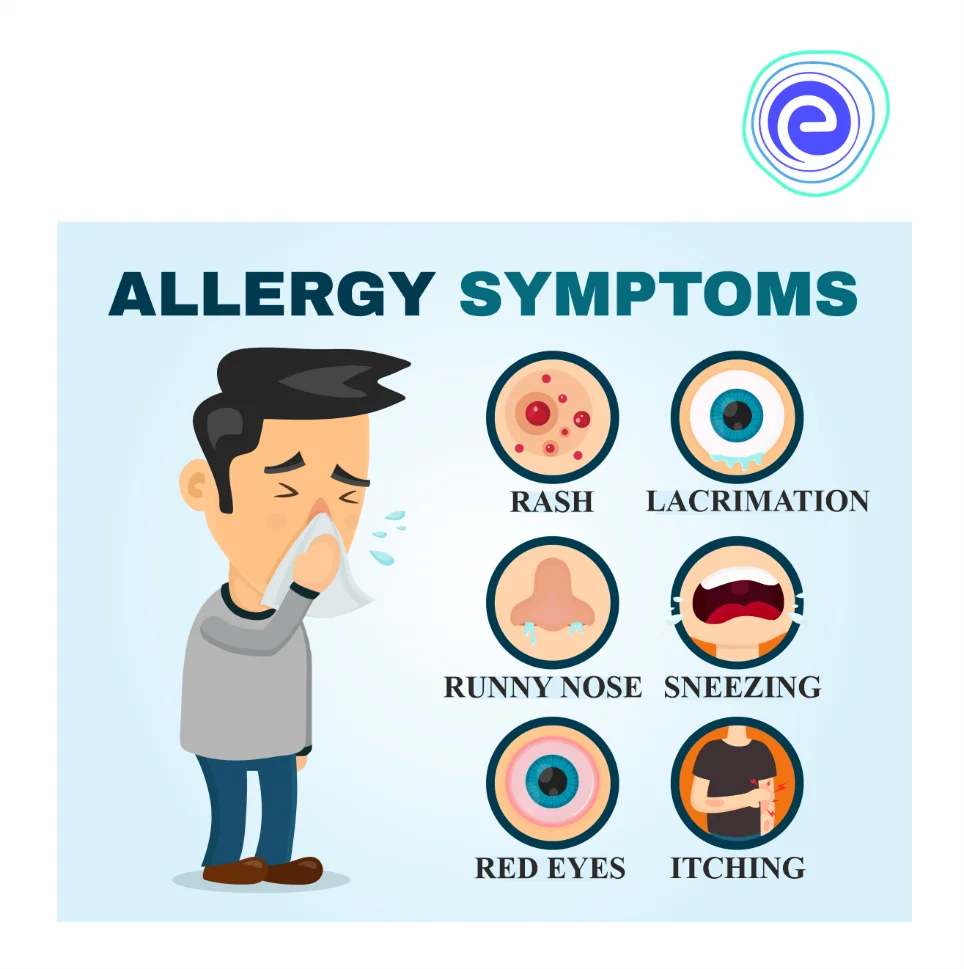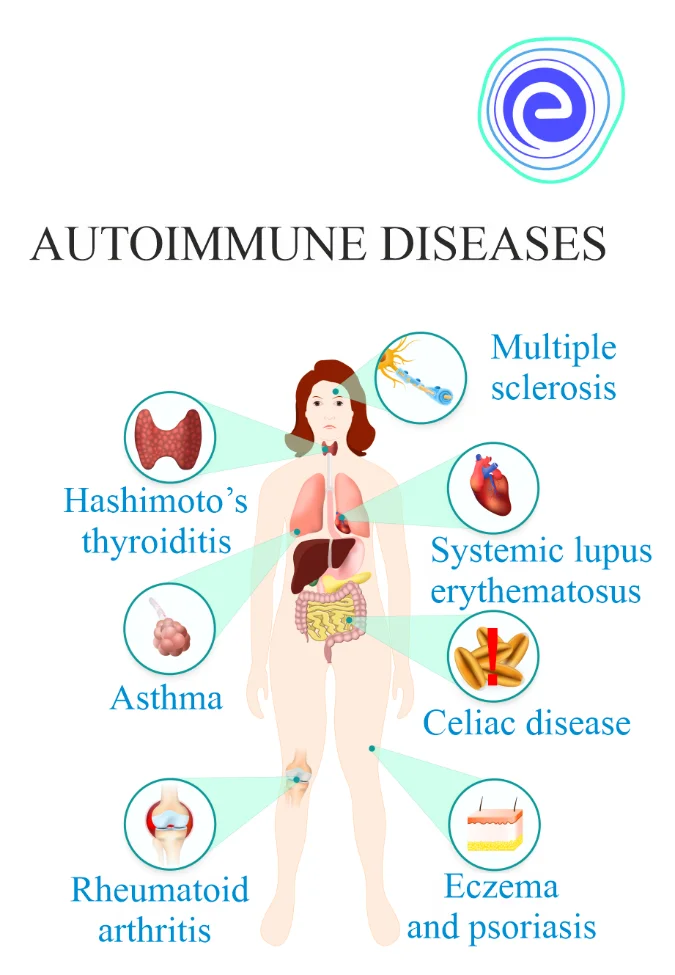- Written By
Shilpi Shikha
- Last Modified 27-12-2024
Immune Disorders and Deficiency: Immunodeficiency & Hypersensitivity
Immune Disorders and Deficiency: Normally the immune system is in charge of maintaining and improving one’s health by creating antibodies against any particles or infections that enter the body and do not belong there. What will happen if our own immune system develops a flaw or begins to harm us?
Immune diseases are the term used to describe these types of events in the body. The immune system, like any other system, can be affected by a variety of illnesses, with symptoms ranging from minor to fatal. Read further to learn about immune disorders and deficiency, their causes, symptoms and treatment.
Immune Disease: Overview
Immune system-related illnesses are caused by flaws in the immune system’s systems. For a variety of causes, abnormalities develop in immune system components such as white blood cells engaged in immunological responses (T and B lymphocytes, as well as scavenger cells) and complement proteins.
Cause of Immune Disorders and Deficiency
Immune disorders can be caused due to various factors which are listed below:
- Hereditary and result from genetic mutations
- Developmental defects
- Infectious agents
- Side effects of drugs used to treat certain conditions
- Poor nutrition
- Limited contact with the natural environment
Immune system related disorders can be classified into two categories: Immunodeficiency and Hypersensitivity.
1. Immunodeficiency
The term “immune deficiency syndrome” refers to a group of medical conditions that impede the body from defending itself against viruses and germs. Immunodeficiency is a condition in which the immune system fails to defend the body against sickness. Immunodeficiency can be primary or secondary.
a. Primary immunodeficiency
It is caused by immune system abnormalities that are either hereditary or developmental. These defects are present at birth, but they may manifest themselves later in life. For example, SCID.
SCID stands for severe combined immunodeficiency, a group of uncommon diseases caused by abnormalities in genes essential in the formation and function of infection-fighting immune cells. SCID babies seem healthy at birth, yet they are extremely vulnerable to infections. Unless newborns get immune-restoring therapies such as blood-forming stem cell transplants, gene therapy, or enzyme therapy, the illness is deadly within the first year or two of life. SCID symptoms appear in childhood and include acute or life-threatening illnesses, particularly viral infections that can cause pneumonia and persistent diarrhoea.
b. Secondary immunodeficiency
It is also called acquired immunodeficiency. The decrease of immune function as a result of disease agents, environmental factors, immunosuppression, or ageing is known as secondary or acquired immunodeficiency. For example, AIDS.The human immunodeficiency virus (HIV) causes acquired immunodeficiency syndrome (AIDS), a chronic, fatal disease. HIV impairs the body’s capacity to resist infection and illness by destroying the immune system. HIV is a sexually transmitted illness that affects both men and women (STI). It can also be passed from mother to child during pregnancy, delivery, or breastfeeding by contact with contaminated blood. Without treatment, HIV can take years to weaken the immune system to the point where symptoms of AIDS manifest. Although there is no cure for HIV/AIDS, drugs can significantly decrease the disease’s course. In many wealthy countries, these medications have lowered AIDS fatalities.
2. Hypersensitivity
Hypersensitive (also known as hypersensitivity response or intolerance) refers to the unfavourable reactions of the immune system. These reactions are commonly referred to as an immune system overreaction, and they can be harmful and unpleasant. A complicated combination of interactions between a drug, the immune system, and viruses in the body, particularly herpes viruses, causes hypersensitivity syndrome. Hypersensitivity can be categorised into allergies and autoimmunity.
Allergy
When a person becomes sensitive to harmless chemicals, the terms allergy is widely employed to characterise improper immune responses. Symptoms do not usually appear after the initial exposure to an antigen in allergic responses. When a person is first exposed to an antigen, reactive lymphocytes are produced, but they do not go into action until the person is exposed for the second time.
Substances that cause allergic reactions are called allergens. A wide range of substances can act as allergens. Some common allergens are listed below:
- Cow’s milk
- Dust mites
- Animal dander
- Peanut
- Molds
- Wheat
- Latex
- Animal Dander
- Pollen
- Insect venom
Symptoms:
- Local symptoms such as a rash or hives, itching, watery/red eyes, hay fever, and a runny nose are examples of mild responses.
- Symptoms that spread to other regions of your body are considered moderate responses. Itching, hives, swelling, and/or difficulty breathing are all possible symptoms.
- Anaphylaxis, or a severe allergic reaction, is a rare, life-threatening emergency in which the body’s response to an allergen is immediate and affects the whole body. Symptoms such as throat swelling, stomach discomfort, cramps, vomiting, diarrhoea, rashes, and swelling develop at first, and if not treated promptly, can lead to coma and even death.
Fig: Allergy Symptoms
Allergies cannot be cured, but they can be managed with a mix of avoidance and medicine, as well as allergen immunotherapy in carefully chosen patients.
Autoimmunity
Normally, the immune system is in charge of maintaining and improving health by creating antibodies against foreign particles or infections that enter the body and do not belong there.
In the case of autoimmune disease, the immune system malfunctions and is unable to distinguish between self and nonself-cells, i.e., it is unable to determine which cells originated in the body and which cells are simply foreign particles or infections, resulting in the production of antibodies against both useful and harmful cells.
The exact cause of auto-immune illnesses is unknown, although research and trials suggest that infectious organisms are the most common cause, with environmental variables playing a role in some cases.
Fig: Various Autoimmune Diseases
Examples of autoimmune disorders are listed below:
- Rheumatoid arthritis: Antibodies produced by the immune system adhere to the linings of joints in rheumatoid arthritis. The joints are subsequently attacked by immune system cells, resulting in inflammation, swelling, and discomfort.
- Systemic lupus erythematosus: Lupus patients have autoimmune antibodies that can bind to tissues all across the body, causing systemic lupus erythematosus. Lupus frequently affects the joints, lungs, blood cells, nerves, and kidneys.
- Inflammatory bowel disease (IBD): Inflammatory bowel disease (IBD) is a kind of bowel illness (IBD). Diarrhoea, rectal bleeding, urgent bowel movements, stomach discomfort, fever, and weight loss are all symptoms of the immune system attacking the gut lining.
Autoimmune illnesses cannot be treated in general. However, they may be managed in many circumstances. Anti-inflammatory medicines, corticosteroids, pain relievers, immunosuppressant therapies, and surgery can all aid with autoimmune disease treatment.
Immune system related illnesses are caused by flaws in the immune system’s systems. Immune disorders can be caused due to various factors such as Hereditary and result from genetic mutations, Developmental defects, Infectious agents, Side effects of drugs used to treat certain conditions, Poor nutrition and also Limited contact with the natural environment. Immune system related disorders can be classified into two categories: Immunodeficiency and Hypersensitivity.
Immunodeficiency is a condition in which the immune system fails to defend the body against sickness. Immunodeficiency can be primary or secondary. Primary immunodeficiency is genetic (SCID) whereas secondary immunodeficiency is acquired due to infection (AIDS). Hypersensitive refers to the immune system’s unfavourable reactions. Hypersensitivity can be categorised into allergies and autoimmunity. When a person becomes sensitive to harmless chemicals, the term allergy is widely employed to characterise improper immune responses. Substances that cause allergic reactions are called allergens. A wide range of substances can act as allergens. In the case of autoimmune disease, the immune system malfunctions and is unable to distinguish between self and nonself-cells. Autoimmune illnesses cannot be treated in general, however, they may be managed in many circumstances.
FAQs on Immune Disorders and Deficiency
Q.1. What is the most common autoimmune disease?
Ans: Rheumatoid arthritis is the most autoimmune disease.
Q.2. Can an autoimmune disorder be cured?
Ans: Autoimmune illnesses cannot be treated in general. However, they may be managed in many circumstances.
Q.3. What is the most common immunodeficiency?
Ans: The most common immunodeficiency is Acquired immunodeficiency syndrome (AIDS).
Q.4. What causes common immunodeficiency?
Ans: A genetic mutation (change) causes CVID. In most cases, this genetic mutation — and CVID symptoms — develop without any apparent cause.
Q.5. What are common allergens?
Ans: Cow’s milk, peanuts etc., are the most common food allergen.
Learn About Immunity Here
We hope this detailed article on Immune Disorders and Deficiency helps you. If you have any queries, feel to ask in the comment section below and we will get back to you at the earliest.










































